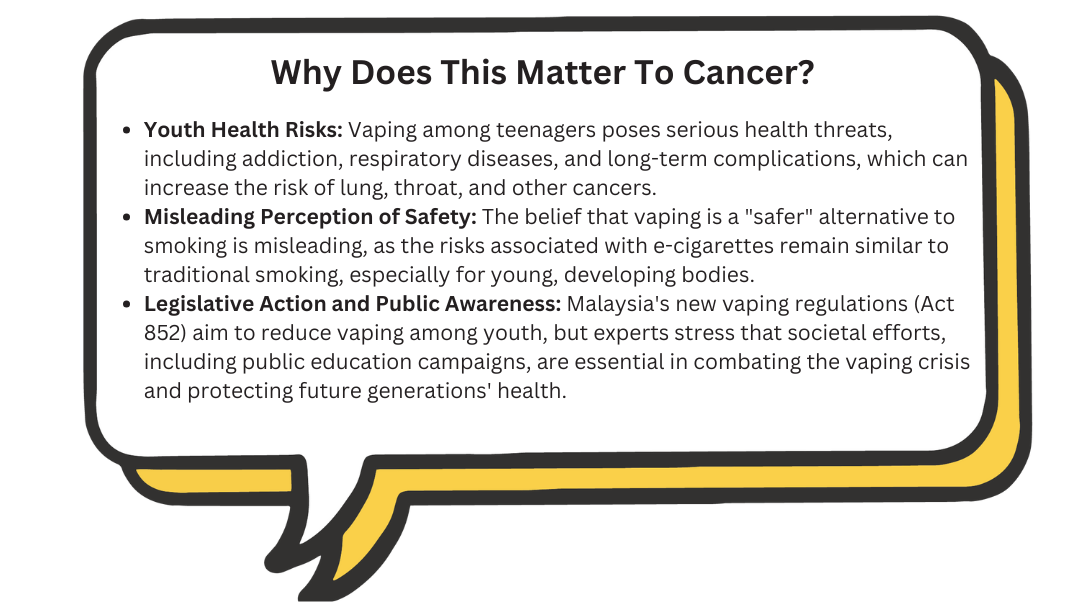The rise in vaping among Malaysian teenagers has become a pressing public health issue, fueled in part by social media influences and the accessibility of e-cigarettes through online platforms. Experts are sounding the alarm as more young people fall victim to this growing trend.
A recent report revealed that 12,252 high school students in Malaysia were caught vaping last year, highlighting a disturbing surge in e-cigarette use among the youth. Health professionals caution that the widespread marketing of e-cigarettes as a “safer” alternative to traditional cigarettes is misleading. While many view vaping as less harmful, the risks remain similar to smoking, including addiction, respiratory diseases, and other long-term health complications, particularly for young and developing bodies.
In an effort to address the escalating issue, the Malaysian government has introduced the Control of Smoking Products for Public Health Act 2024 (Act 852), which will regulate the sale and use of e-cigarettes, set to take effect on October 1, 2024. The new law prohibits the sale and use of vape products to anyone under the age of 18, while also imposing stricter regulations on their distribution through both online and physical stores. Additionally, the law expands no-smoking areas to 28 locations, with more severe penalties for violations.
Despite the new regulations, experts believe that legislative action alone will not be enough to curb the vaping crisis. Minister of Health Datuk Seri Dr. Dzulkefly Ahmad emphasized that combating this issue requires a collective effort from all sectors of society—government bodies, private institutions, civil society organizations, and individuals alike.
In response, civil society groups such as the National Cancer Society of Malaysia (NCSM) and Persatuan Mencegah Dadah Malaysia (PEMADAM) have partnered with authorities to spearhead public awareness initiatives, including the JomSihat and JomLapor programs.
JomSihat focuses on educating various demographic groups—ranging from children and teenagers to parents and teachers—about the dangers of vaping. Meanwhile, JomLapor provides a platform for the public to report violations of the vaping law anonymously, empowering Malaysians to take an active role in safeguarding their health and advocating for cleaner air.
As vaping continues to rise among young people, the introduction of Act 852 marks a critical step toward protecting Malaysia’s youth from the dangers of e-cigarettes. By preventing teenagers from adopting vaping as a habit, the government aims to reduce future cases of lung, throat, and other related cancers, while promoting a healthier, smoke-free generation.






